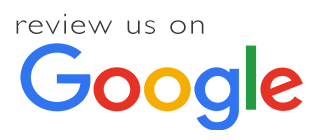Hospital Policies for Companion Animal Hospital
Patient Arrival Policy
For your protection, and that of others, all dogs must be on a leash and properly controlled while in the waiting area or exam rooms. All cats must be presented in an appropriate cat carrier or on a leash. If you or your pet is coughing, sneezing, vomiting, or showing any other signs of a possible infectious disease, please remain in your vehicle with your pet. Once you arrive, please call us at 530-677-3868 and we will provide you with further instructions.
Accessibility Policy
We are committed to ensuring that our policies, practices, and procedures are consistent in providing customer service to everyone. People with disabilities will have access to our goods and services. Our facility has wheelchair accessibility including our washroom. Our team will assist you with any accessibility needs. If you require accessibility assistance, please contact us prior to your appointment. Comments on our services regarding how well your expectations are being met are always welcomed and appreciated. We will make every effort to assist you with your accessibility needs.
Appointment / Cancellation Policy
We ask that our clients provide us with at least 48 hours notice when canceling an appointment. If you arrive 10 minutes past your scheduled appointment time, it is at the hospitals discretion to cancel and/or reschedule your appointment for another day and time.
After two “no-shows” for your scheduled appointment, we will require a deposit of $67 prior to booking your next appointment. After two “no-shows” for a scheduled surgical procedure, we will require a deposit of $100 prior to booking the surgery. All appointments will be seen in this order; Emergencies, Scheduled Appointments and then Walk-ins. Please call our office in advance if you are experiencing an emergency, depending on our availability, it is at our discretion to refer to another animal hospital. All specialist appointments require a $200 scheduling fee, refundable up until 2 weeks prior to the appointment.
Payment and Refund Policy
Clients have a right, and are encouraged, to request a written estimate of charges at anytime, before or during a treatment process. Estimate pricing is only valid for 30 days upon origination.
Payment in full is due when services are rendered. Acceptable payment methods include cash, check, debit and credit card. We do not accept Care Credit. In some instances, a down payment may be required for significant emergency surgical procedures, hospitalized patients, or no credit history at our hospital. Payment is due in full at the time services are rendered. A late fee of 1.5% per month on any unpaid balance and a $3.00 monthly statement fee. Failure to pay for services shall be a default, and accounts will turned over to collections. A fee of $35.00 shall be assessed for returned checks.
We will not refund any performed services or prescribed medications after the patient has left our office. We will also not refund any services that require diagnostic reports or services from an outside vendor. We are not able to extend charge accounts to our clients, and payment plans are never authorized for elective procedures.
Fasting Patient Policy
Animals arriving for surgeries, sedation, and anesthetics must be fasted unless otherwise told. If your pet is scheduled for surgery or an anesthetic procedure, he or she should not have food after 10:00 p.m. the night before and water should be removed in the morning of the procedure. Please walk your dog prior to bringing him or her so that they have had a chance to evacuate their bowels and bladder. Please call us for special instructions regarding puppies, kittens, rabbits or diabetic animals.
The Veterinary Client Patient Relationship (VCPR)
A Veterinarian Client Patient Relationship exists when; 1) the veterinarian takes on the responsibility for providing your individual pet with veterinary care, 2) When the client has indicated a willingness to accept the advice of the veterinarian 3) When the veterinarian has sufficient and recent knowledge of your pet to provide a diagnosis, medications and a treatment plan.
The purpose of this relationship is to allow a veterinarian to know you and have sufficient and recent working knowledge of your pet so that you have confidence in our advice and recommendations so that your pet will benefit from the appropriate care, medications, and treatment.
Prescription Policy
Veterinarians cannot sell a prescription product without being familiar with their patients first.
Every patient is required to establish a VCPR with one of our veterinarians yearly prior to selling or prescribing medication. Certain medications require certain lab tests to be performed. Long-term use of a drug to treat certain conditions may have complications, these conditions need to monitored so that therapies can be modified as needed for the best health and welfare of your pet.
Please do not wait until the last minute to call for your refill, we may not be able to accommodate the request as quickly as your pet needs. Please allow at least 48 hours for all refill requests. It is recommended to call at least a week before running out of medication. Some medications are special order and require additional time for delivery.
Euthanasia Policy
Euthanasia is an important and necessary procedure meant for the purpose of preventing unnecessary suffering when animals are terminally ill or injured. As it is a medical procedure, it is ultimately performed at the discretion of the Veterinarian as circumstances warrant.
Euthanasia is appropriate when:
An animal is terminally ill and can no longer be satisfactorily palliated or managed. An animal is so severely injured or ill that its prognosis for recovery with reasonably and commonly available treatment is very poor, grave or hopeless. An animal has a condition that can no longer be managed by reasonably and commonly available treatment. An animal has a severe aggression problem, and an appropriate treatment attempt has been made unsuccessfully.
Euthanasia is not appropriate and will not be provided when:
An animal is minimally ill or injured, and no reasonable attempt at diagnosis or treatment has been made, the pet is unwanted, the owner has died and “it’s in their will,” for the convenience of the owner, or perceived old age.
Off Label Use Of Medication Policy
Many medications that are prescribed for pets are being used off label and thus are not approved by California Veterinary Medical Association(CVMA) to be used on your pet for this purpose. However, these drug products are either an approved veterinary or human drug with a drug information number (DIN) that have undergone rigorous testing for efficacy and stability. Off-label usage of a human or veterinary drug means that this product is being used in a way other than its intended use or against the recommended instructions and diagnostic testing suggested by the drug manufacturer. However, often with most off-label usage, there is considerable evidence in the veterinary literature on how to properly administer these medications to your pet. Reasons for utilizing this off-label drug product outweigh the potential risks and other alternative treatment(s) and the probable consequences that may occur if the proposed medication is not administered according to the drug manufacturer. As such we may prescribe and dispense this medication with the best intentions for your pet. Please contact us if you have any concerns with regard to using a product off-label.
Abandoned Pets
All pets not picked up from the hospital within 14 days past their discharge or pick up date will be considered abandoned. The hospital is given authorization to claim ownership of the pet(s) and make arrangements as they deem best.
Warranties and Liability
No guarantee, assurance or warranty will be made as to the results of treatments, procedures or surgery. Every surgical procedure, anesthesia, and treatment, even if performed on a healthy animal, carries a certain amount of risk and probability of complications. The doctors and staff at this hospital will make every reasonable attempt to care for our patient(s). The hospital and its staff will not be held responsible in any manner, connection, or circumstance, on account of the care, treatment, or safe keeping of a patient.
In Case of Emergency
Unknown conditions or complications may occur that need additional treatments, procedures, surgery or even resuscitation. The doctors and staff will always act in the best interest of our patient and will perform any reasonable and humane procedure to treat a patient that is deemed medically necessary by the attending veterinarian. The client will bare full financial responsibility for any costs incurred for life saving efforts. Every reasonable effort will be made to contact the client before such procedures are performed. If a client does not wish the hospital to perform life saving efforts, including resuscitation, in the event of an emergency, they will need to notify the hospital. A Do Not Resuscitate(DNR) form can be provided upon request prior to any services or procedures.





